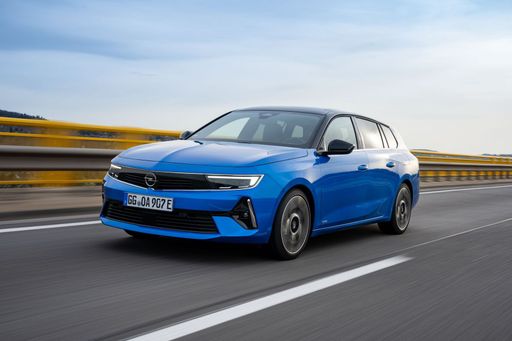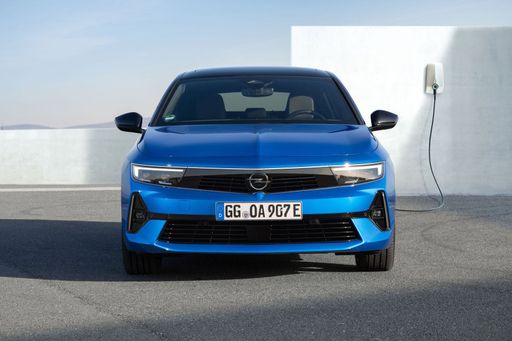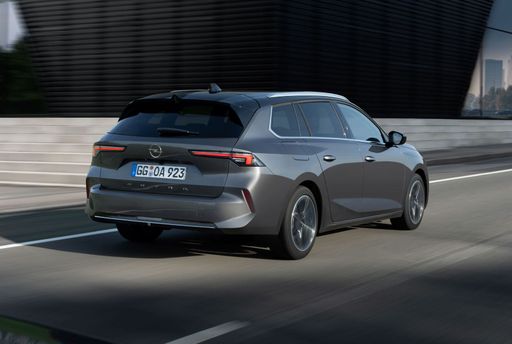Hyundai Bayon vs Vauxhall Astra Sports Tourer - Differences and prices compared
Compare performance (90 HP vs 225 HP), boot space and price (20100 £ vs 26500 £ ) at a glance. Find out which car is the better choice for you – Hyundai Bayon or Vauxhall Astra Sports Tourer?
Costs and Efficiency:
Looking at overall running costs, both models reveal some interesting differences in everyday economy.
Hyundai Bayon has a clearly perceptible advantage in terms of price – it starts at 20100 £ , while the Vauxhall Astra Sports Tourer costs 26500 £ . That’s a price difference of around 6420 £.
Fuel consumption also shows a difference: Vauxhall Astra Sports Tourer manages with 2.30 L and is therefore decisively more efficient than the Hyundai Bayon with 5.80 L. The difference is about 3.50 L per 100 km.
Engine and Performance:
Under the bonnet, it becomes clear which model is tuned for sportiness and which one takes the lead when you hit the accelerator.
When it comes to engine power, the Vauxhall Astra Sports Tourer has a clearly edge – offering 225 HP compared to 90 HP. That’s roughly 135 HP more horsepower.
In acceleration from 0 to 100 km/h, the Vauxhall Astra Sports Tourer is decisively quicker – completing the sprint in 7.60 s, while the Hyundai Bayon takes 11.90 s. That’s about 4.30 s faster.
There’s also a difference in torque: Vauxhall Astra Sports Tourer pulls significantly stronger with 360 Nm compared to 172 Nm. That’s about 188 Nm difference.
Space and Everyday Use:
Beyond pure performance, interior space and usability matter most in daily life. This is where you see which car is more practical and versatile.
Both vehicles offer seating for 5 people.
In curb weight, Hyundai Bayon is slightly lighter – 1175 kg compared to 1394 kg. The difference is around 219 kg.
In terms of boot space, the Vauxhall Astra Sports Tourer offers noticeable more room – 597 L compared to 411 L. That’s a difference of about 186 L.
When it comes to payload, Vauxhall Astra Sports Tourer hardly perceptible takes the win – 497 kg compared to 460 kg. That’s a difference of about 37 kg.
Who wins the race in the data check?
The Vauxhall Astra Sports Tourer is far ahead overall in the objective data comparison.
This result only shows which model scores more points on paper – not which of the two cars feels right for you.
Costs and Consumption
View detailed analysis
Engine and Performance
View detailed analysis
Dimensions and Body
View detailed analysis

Vauxhall Astra Sports Tourer
Hyundai Bayon
The Hyundai Bayon slips neatly between city runabout and small SUV, offering surprising practicality and a fresh, confident design that stands out in urban traffic. It's an easy buy for shoppers who want smart packaging, tidy handling and a dash of personality without fuss — a sensible little crossover that makes everyday driving a bit more enjoyable.
details




Vauxhall Astra Sports Tourer
The Opel Astra Sports Tourer blends family-friendly practicality with a sleek, grown-up wagon silhouette that manages to be both useful and unexpectedly stylish. It’s an easy car to live with — comfortable, well put together and clever with space — a sensible choice for buyers who want everyday versatility without fuss.
details


Costs and Consumption |
|
|---|---|
|
Price
20100 - 25800 £
|
Price
26500 - 41800 £
|
|
Consumption L/100km
5.80 L
|
Consumption L/100km
2.3 - 6.1 L
|
|
Consumption kWh/100km
-
|
Consumption kWh/100km
15.60 kWh
|
|
Electric Range
-
|
Electric Range
81 - 413 km
|
|
Battery Capacity
-
|
Battery Capacity
51 kWh
|
|
co2
130 - 132 g/km
|
co2
0 - 137 g/km
|
|
Fuel tank capacity
-
|
Fuel tank capacity
42 - 52 L
|
Dimensions and Body |
|
|---|---|
|
Body Type
SUV
|
Body Type
Estate
|
|
Seats
5
|
Seats
5
|
|
Doors
-
|
Doors
5
|
|
Curb weight
1175 - 1200 kg
|
Curb weight
1394 - 1760 kg
|
|
Trunk capacity
411 L
|
Trunk capacity
516 - 597 L
|
|
Length
-
|
Length
4642 mm
|
|
Width
1775 mm
|
Width
1860 mm
|
|
Height
-
|
Height
1443 - 1481 mm
|
|
Max trunk capacity
-
|
Max trunk capacity
1553 - 1634 L
|
|
Payload
450 - 460 kg
|
Payload
413 - 497 kg
|
Engine and Performance |
|
|---|---|
|
Engine Type
Petrol
|
Engine Type
Petrol, Diesel, Electric, Petrol MHEV, Plugin Hybrid
|
|
Transmission
Manuel, Automatic
|
Transmission
Manuel, Automatic
|
|
Transmission Detail
Manual Gearbox, Dual-Clutch Automatic
|
Transmission Detail
Manual Gearbox, Automatic Gearbox, Reduction Gearbox, Dual-Clutch Automatic
|
|
Drive Type
Front-Wheel Drive
|
Drive Type
Front-Wheel Drive
|
|
Power HP
90 HP
|
Power HP
130 - 225 HP
|
|
Acceleration 0-100km/h
11.9 - 13.3 s
|
Acceleration 0-100km/h
7.6 - 11 s
|
|
Max Speed
-
|
Max Speed
170 - 235 km/h
|
|
Torque
172 Nm
|
Torque
230 - 360 Nm
|
|
Number of Cylinders
3
|
Number of Cylinders
3 - 4
|
|
Power kW
66 kW
|
Power kW
96 - 165 kW
|
|
Engine capacity
998 cm3
|
Engine capacity
1199 - 1598 cm3
|
General |
|
|---|---|
|
Model Year
2025
|
Model Year
2023 - 2025
|
|
CO2 Efficiency Class
D
|
CO2 Efficiency Class
D, E, A, C, B
|
|
Brand
Hyundai
|
Brand
Vauxhall
|
What drivetrain options does the Hyundai Bayon have?
The Hyundai Bayon is available as Front-Wheel Drive.
